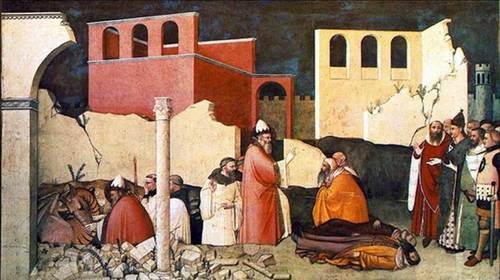
Saints: December 2009 Archives

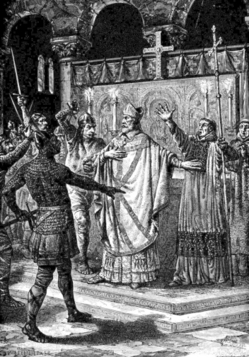
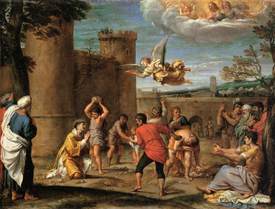
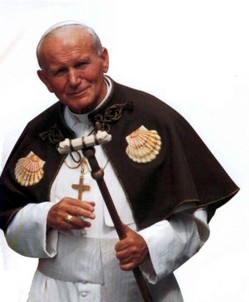 Pope Benedict recognized John Paul II as living a life of heroic virtue upon the recommendation of the Congregation for Saints. There are various steps the Church takes when she investigates someone for possible canonization. This is the second of four of the steps, next being "beatification." The Church will now refer to John Paul as the "Venerable Servant of God ..." but there is no public ceremonial for bestowing this title as there is when a person is beatified or canonized.
Pope Benedict recognized John Paul II as living a life of heroic virtue upon the recommendation of the Congregation for Saints. There are various steps the Church takes when she investigates someone for possible canonization. This is the second of four of the steps, next being "beatification." The Church will now refer to John Paul as the "Venerable Servant of God ..." but there is no public ceremonial for bestowing this title as there is when a person is beatified or canonized.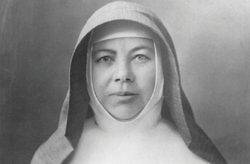
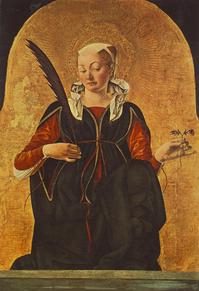
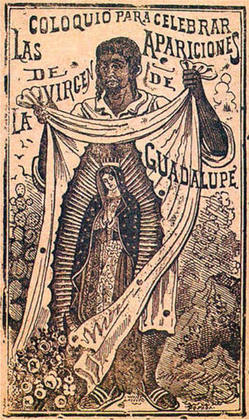
Lord God, through Saint Juan Diego You made known the love of Our Lady of Guadalupe toward Your people. Grant by his intercession that we who follow the counsel of Mary, our Mother, may strive continually to do Your will.
The Vatican biography on Saint Juan Diego and Pope John Paul's 2002 canonization homily. Also, there is a part of the beatification homily here.
The Pope said in part at the canonization:
Happy Juan Diego, true and faithful man! We entrust to you our lay brothers and sisters so that, feeling the call to holiness, they may imbue every area of social life with the spirit of the Gospel. Bless families, strengthen spouses in their marriage, sustain the efforts of parents to give their children a Christian upbringing. Look with favor upon the pain of those who are suffering in body or in spirit, on those afflicted by poverty, loneliness, marginalization or ignorance. May all people, civic leaders and ordinary citizens, always act in accordance with the demands of justice and with respect for the dignity of each person, so that in this way peace may be reinforced.
Beloved Juan Diego, "the talking eagle"! Show us the way
that leads to the "Dark Virgin" of Tepeyac, that she may receive us
in the depths of her heart, for she is the loving, compassionate Mother who
guides us to the true God. Amen.
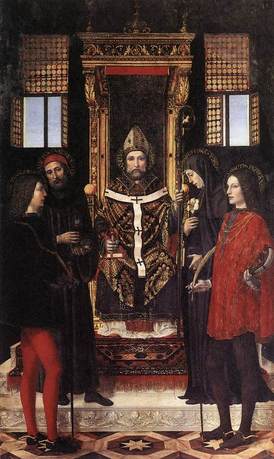
But lest perchance any one should speak against as it were the littleness of the Spirit and from this should endeavour to establish a difference in greatness, arguing that water seems to be but a small part of a Fount, although examples taken from creatures seem by no means suitable for application to the Godhead; yet lest they should judge anything injuriously from this comparison taken from creatures, let them learn that not only is the Holy Spirit called Water, but also a River, as we read: "From his belly shall flow rivers of living water. But this He said of the Spirit, Whom they were beginning to receive, who were about to believe in Him" (Jn 7:38-39).
So, then, the Holy Spirit is the River, and the abundant River, which according to the Hebrews flowed from Jesus in the lands, as we have received it prophesied by the mouth of Isaiah (Is 66:12). This is the great River which flows always and never fails. And not only a river, but also one of copious stream and overflowing greatness, as also David said: "The stream of the river makes glad the city of God.
For neither is that city, the heavenly Jerusalem, watered by
the channel of any earthly river, but that Holy Spirit proceeding from the
Fount of Life, by a short draught of Whom we are satiated, seems to flow more
abundantly among those celestial Thrones, Dominions and Powers, Angels and
Archangels, rushing in the full course of the seven virtues of the Spirit. For
if a river rising above its banks overflows, how much more does the Spirit, rising
above every creature, when He touches the as it were low-lying fields of our
minds, make glad that heavenly nature of the creatures with the larger
fertility of His sanctification. (St. Ambrose, On the Holy Spirit, Book One, 176-178)
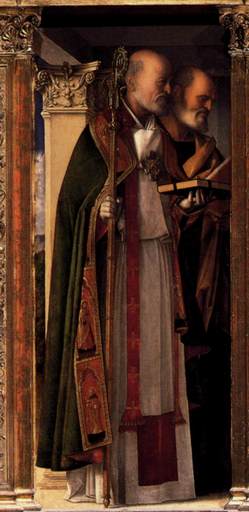
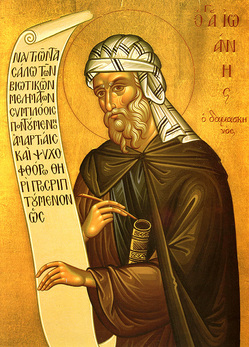 Saint John of Damascus spent most of his life in the monastery of
Saint Sabas, near Jerusalem, under Muslim rule, indeed, protected by it. Born in Damascus c. 676, John received a classical and theological education, and followed
his father in a government position under the Muslims. He resigned after a few years so that he could go to the monastery of Saint Sabas. Saint John is considered the last of
the Greek Church Fathers (his writings)
Saint John of Damascus spent most of his life in the monastery of
Saint Sabas, near Jerusalem, under Muslim rule, indeed, protected by it. Born in Damascus c. 676, John received a classical and theological education, and followed
his father in a government position under the Muslims. He resigned after a few years so that he could go to the monastery of Saint Sabas. Saint John is considered the last of
the Greek Church Fathers (his writings)
